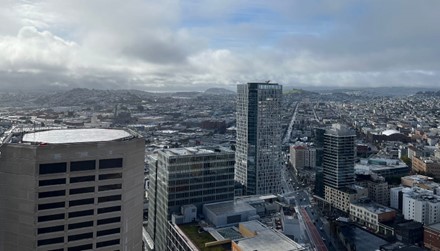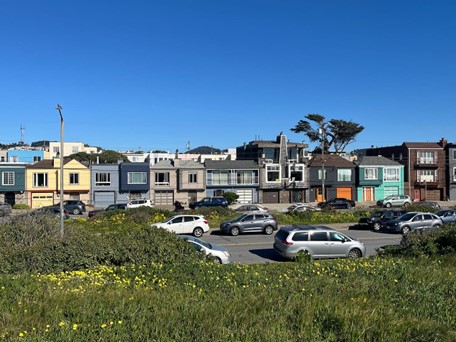The NIBMY/YIMBY discourse around housing is unhelpful. A better frame is speculators versus affordability.
MAR 23, 2024
https://lincolnmitchell.substack.com/p/speculators-and-affordability-not
The discussion of housing in San Francisco remains mired in the inane polarized labeling of NIMBY and YIMBY. Neither of these terms are accurate and both obscure much of the nuance around a debate that is about much more than whether or not to build more housing.
Most so-called NIMBYs are for some housing, particularly affordable housing, but less enamored with the idea of unfettered development throughout the city. Similarly, many so-called YIMBYs are much more committed to market rate, read luxury, housing than to affordable housing, but in many respects their agenda isn’t about housing at all.
The better way to understand these two poles is not NIMBY and YIMBY, but speculation versus affordable housing. What is referred to as the YIMBY agenda is not so much a policy of building housing for San Franciscans who currently cannot afford housing, but to substantially increase the population of the city and increase the number of housing units.
Moreover, the YIMBY policies, whether already in place or proposed, will not immediately accelerate housing development, because in fact nobody is all that interested in building housing in San Francisco. Rather, it will lay a foundation, pardon the bad pun, for unfettered development in the future.

The people who will most benefit from those policies are speculators who have the resources now or in the not-too-distant future to develop property and then wait until the demand goes up. If you had a few hundred million dollars now to buy some buildings or to do some development projects and could wait five or ten years, you could make a lot of money on these new proposed developments. Speaking for myself, I don’t have those resources. I suspect that most of you reading this do not either.
Importantly, none of this has anything to do with making housing more affordable for teachers, nurses, Muni operators, police officers and other working San Franciscans for whom simply paying rent every month is an economic burden.
The NIMBY agenda is similarly mischaracterized. While there are people who would not like to see a single unit of housing built in San Francisco, that is an absurd position. San Francisco will benefit from more housing, but only if it is affordable. Many people who are labeled as NIMBYs share this view. Somebody who opposes a luxury apartment tower in the Outer Sunset or the Mission but who approves of building affordable housing on an empty lot in the Haight, the Richmond or in whatever neighborhood they live is not a NIMBY.
Very few San Franciscans are okay with the idea of simply turning their city’s future, the skyline and the neighborhoods over to real estate speculators. However, the necessary changes in laws and regulations to facilitate speculation are much more likely to be supported by significant numbers of San Franciscans if they are presented as being about housing.
Similarly, a policy view that says we need to build more housing in San Francisco, but that the major emphasis needs to be on affordable housing rather than simply either adding hundreds of thousands of new residents or keeping expensive buildings empty for years until the developers can make a profit, is a much more appealing message than the caricature of the NIMBY position as never build anything anywhere.
Like all cities San Francisco is always changing and always a work in progress. Even more than many cities San Francisco is an extraordinarily diverse place where there is naturally going to be disagreement about visions of the city’s future. Much of the politics of San Francisco is about disputing and arguing those visions.
All of that is natural, indeed healthy, in a democratic city. San Franciscans deserve a rich debate about these questions particularly when it comes to issues like housing and development, but it is unhelpful to ground that debate in buzzwords and narratives that are completely misleading, such as a NIMBY/YIMBY based discourse

To suggest that the housing debate in San Francisco is fundamentally between those want to build with no restrictions and those who want to build nothing at all is to deliberately mislead. Suggesting that the way to drive the cost of housing down is simply to drop regulations and then hope for two acts of magic: first that this will lead to a spate of very quick housing construction and that increasing the number of available luxury units will make housing affordable for everybody is equally misleading. Those are the two ideas that form the core of the YIMBY view and are triumphs of narrative over economic reality.
The real question in San Francisco when it comes to housing construction is whether we want to prioritize building units that are affordable to working San Franciscans, or pave the way for speculators at some point, perhaps years down the road, to get even wealthier. Ultimately, the housing debate in San Francisco is about that-affordability versus speculation not NIMBY versus YIMBY.

